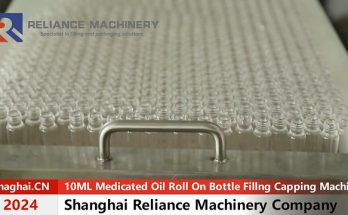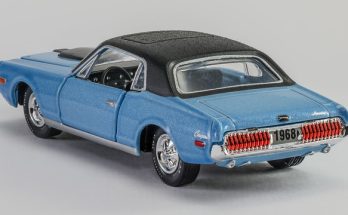
Metal Molds for Plastic
Steel is the preferred material for injection molds. It is more durable than aluminum and provides superior wear resistance. It also demonstrates better thermal conductivity, which helps reduce flash in the molded product.
Although both metals are suitable for most standard resin formulations, steel offers an advantage when working with advanced or complex resins that contain additives such as glass, fiber or metal inserts. A softer metal such as aluminum runs the risk of scratches that affect the texture and finish of the finished product.
Cost
The price of plastic injection molds can vary depending on the design, size, and complexity of the finished product. The price per part will also depend on the intended production volume, which heavily weighs into the overall cost. The longer the production run, the more money you will make the more you will recoup the initial investment in the mold.
Typically, aluminum molds are cheaper than steel molds but don’t hold up to high-volume runs for long periods of time. For this reason, it is a good idea to choose a metal that is durable and will withstand repeated cycles of plastic injection molding. Steel is a heavyweight champion when it comes to durability and can handle higher cycle numbers than aluminum. This makes it a good choice for high-volume production.
Another factor to consider is the compatibility of the mold material with the resin used for your project. Some types of plastic require special additives or can be corrosive, which means that you need a mold made from a material that will not be damaged by these materials. In this case, steel is a good option because it will not deform when exposed to high-pressure plastic injection molding.
When calculating the cost of a mold, consider the cost of the main steel plates as well as other parts, such as sliding pillars, ejector pins, and hot runners. These parts are necessary for producing the finished plastic part. The hardness of the mold metal molds for plastic steel will also influence the final cost. Softer steels require less heat treatment and machining, but they may not be as durable as hardened or pre-hardened steel.
Durability
Since plastic injection molding is a high-volume manufacturing process, the quality and durability of molds are paramount. Durability is determined by the design of the mold, its ability to resist stress and wear, and the operating environment it operates under. Having a well-thought-out design can significantly extend mold lifespan. It is important to use a design that reduces undue thermal stress and prevents damage caused by misalignment. The type of plastic used can also affect mold durability, as some plastics require more force to melt and eject from the mold.
Aluminum injection molds are designed to withstand lower production volumes, and they work best for prototypes and smaller parts where dimensional accuracy is not critical. They are able to heat and cool more quickly than steel molds, which allows manufacturers to produce components in shorter cycle times. However, they tend to wear out faster than steel injection molds, requiring replacement or repair sooner.
Steel injection molds are best for high-volume production runs, as they can withstand repeated use over many years. They have a higher upfront cost, but they provide greater durability than aluminum molds and can yield tens of thousands of pieces over their lifespan. The operating environment of a mold can also impact its life expectancy, and clean working environments typically have the longest mold lifespans.
Compatibility
In addition to their durability, metal molds are highly compatible with most standard injection molding resins. They also offer better compatibility with advanced resins, including those that are reinforced or contain additives. However, softer metals like aluminum may run the risk of being scratched by some types of inserts during two-shot injection molding.
The longevity of a mold depends on several factors, including its complexity and the material it’s molded with. A simple mold that produces a flowerpot or 5-gal bucket will last longer than a more complex mold, which will feature cam action, unscrewing mechanisms, collapsible cores and contoured parting lines.
Another important factor in mold longevity is the type of steel it’s made from. Injection molds should be made from stainless steel or heat-treated tool steel, such as 1030 or 4130, to protect them from rust and calcium deposits in the water used for injection.
If you’re planning a long production run, it’s best to choose steel molds because they can hold up to the wear and tear of tens metal molds for plastic of millions of cycles. However, if you’re planning to produce fewer parts, aluminum may be the more suitable option due to its lower upfront costs. In either case, a quality-built aluminum mold will still provide excellent durability over time. Choosing the right materials is essential to ensuring your plastic products are manufactured with high-quality precision and accuracy.
Repairability
When manufacturing industrial plastic products, a mold needs to be able to endure physiological wear and tear. This is why it is important to inspect and repair a mold as soon as it shows signs of damage. Otherwise, it could lead to a production line breakdown and poor quality plastic products. Injection molds are subjected to high-potency thermal shocks and mechanical strain, making them susceptible to corrosion and fatigue. Injection molds must also be able to withstand high clamp pressures, which can lead to cracks or indentions. Using proper cleaning methods can reduce the risk of damage, but it is still necessary to perform regular inspections and repairs.
When repairing plastic injection molds, it is important to choose the right steel for the job. There are many different types of steel, and each one has its own set of properties. Some are easier to machine and heat treat, while others offer a better level of corrosion resistance or temperature change resistance. Generally, most moldmakers have their preferred steels, such as 1030 or 4130 for the mold base and P-20 or 420 stainless steel for cores and cavities.
Another factor to consider when choosing a metal mold is its compatibility with your chosen resin. Aluminum molds are good for a wide range of resins, but they can be damaged by long glass fibers, mica flakes, or other additives. This can be costly and cause cosmetic defects in the final product. Steel is less malleable than aluminum, so it can withstand these additives and prevent them from scratching the cavity walls of the mold.

